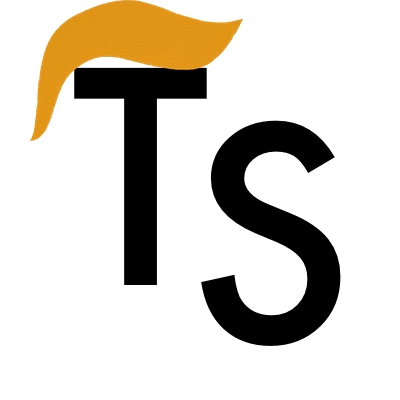Making Python great again
TrumpScript is language based upon the illustrious Donald Trump. As the undeniably best presidential candidate in the 2016 language, we found that the current field of programming languages does not include any that Trump's glorious golden combover would approve of.
TrumpScript is our solution to this. It's the programming language Trump would approve of. Just like he is making America great again, we hope our efforts will make programming great again.
To use, download the .zip and extract the contents. Write a trumpscript file following the syntax we've specified (good luck), and edit line 35 of test/test.py to point to the location of your file. Then run test.py and enjoy the wonderful world of TrumpScript
Our language includes several convenient features, perfect for any aspiring Presidential candidate including:
- No floating point numbers, only integers. America never does anything halfway.
- All numbers must be strictly greater than 1 million. The small stuff is inconsequential to us.
- There are no import statements allowed. All code has to be home-grown and Amerian made.
- Instead of "True" and "False," we have "fact" and "lie"
- Only the most popular English words, Trump's favorite words, and current politician names can be used as variable names.
- Error messages are mostly quotes directly taken from Trump himself.
- All programs must end with "America is great."
- Our language will automatically correct Forbes' $4.5B to $10B
- In it's raw form, TrumpScript is not compatible with Windows, because Trump isn't the type of guy to believe in PC
- The language is completely case insensitive
The grammar of the language is fairly convoluted, but here's a taste of the enlightened decisions we've made.
Arithmetic operators:
- '+' and 'plus' do addition
- '-' and 'minus' do subtraction
- '*' and 'times' do multiplication
- '/' and 'over' do division
- '<', 'less', 'fewer', and 'smaller' all evaluate to 'less than'
- '>', 'more', 'greater', and 'larger' all evaluate to 'greater than'
Control flow:
- Use ',' and ';' to treat compound statements as a single evaluation, similar to how '()' are used in other languages
- Use ':' and '!' to define the scope of loops and if statements, similar to how '{}' is used in Java
- 'if', 'else if', and 'else' do what you think they do
- 'not', 'and', and 'or' do what you expect
The exciting parts:
- Strings are denoted by double quotes ("I love Trump")
- The 'is' and 'are' keywords are used both to check for equality, and for assignment. To use for assignment, say something like 'Trump is great' or 'Democrats are dumb'. To use to check for equality, do the same but append a '?'. For example, you may need to ask yourself 'Trump is "the best"?' (although we all know that would evaluate to 'fact' anyway)
- Assignment can also be done via the 'make' keyword. E.g. 'Make America great' assigns the value of the variable 'great' to 'America'
- Printing to stdout can be done via 'tell' or 'say'
- While loops are denoted via 'as long as'. And that's the only type of loop you need anyway.
- If a 'word' (so anything that could be a variable name) is deemed unnecessary by the compiler, it's simply thrown away. So you can make truly self documenting code, or code that appear to read very very similarly to real speeches by the big man himself. You can find some interesting examples in our 'test/test_files' directory
But most importantly, Trump doesn't like to talk about his failures. So a lot of the time your code will fail, and it will do so silently. Just think of debugging as a fun little game.
Created for HackRice (hack.rice.edu) by:
Sam Shadwell, @samshadwell
Dan Korn, @DnlRKorn
Chris Brown, @CryoBrown
Cannon Lewis, @cannon10100
